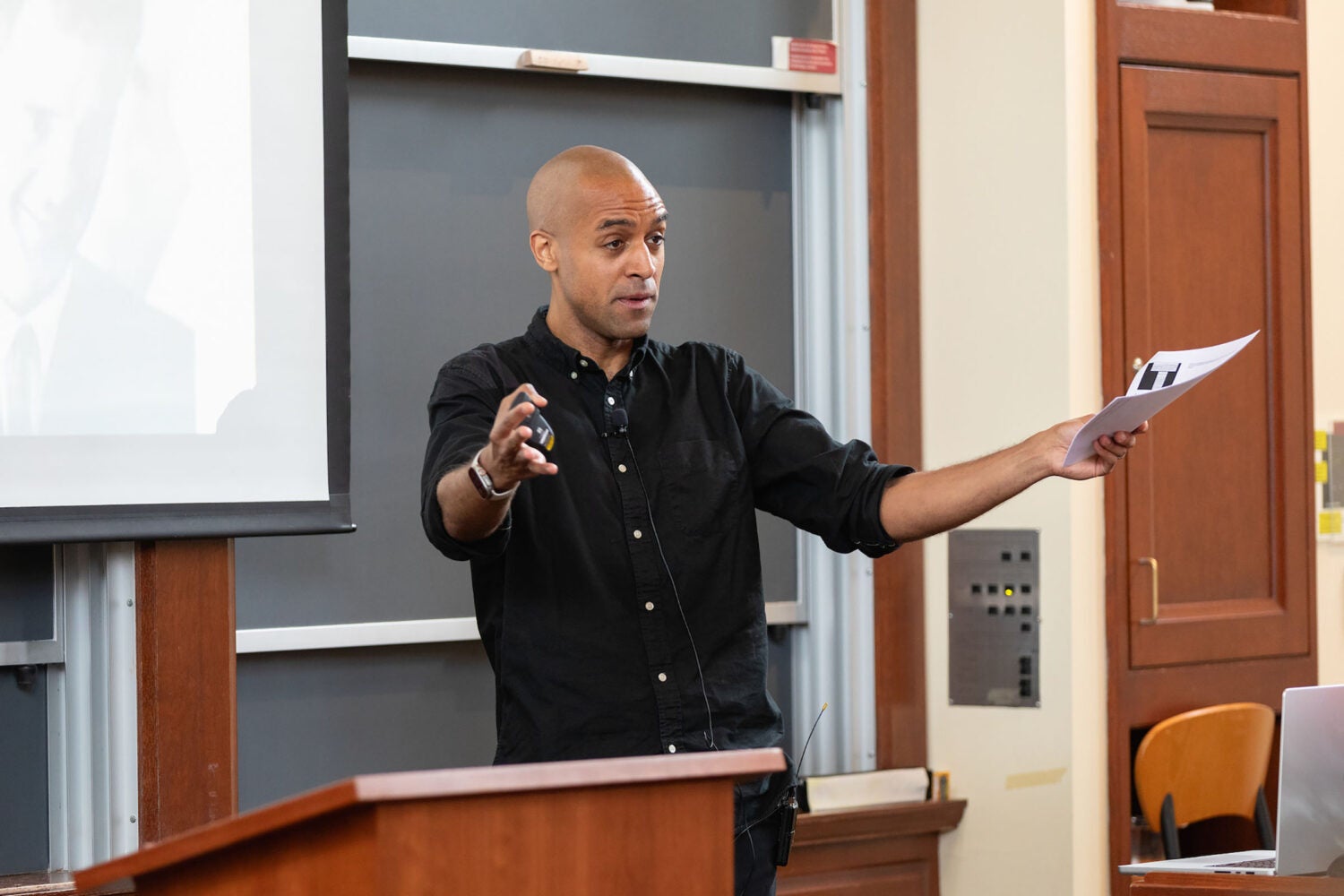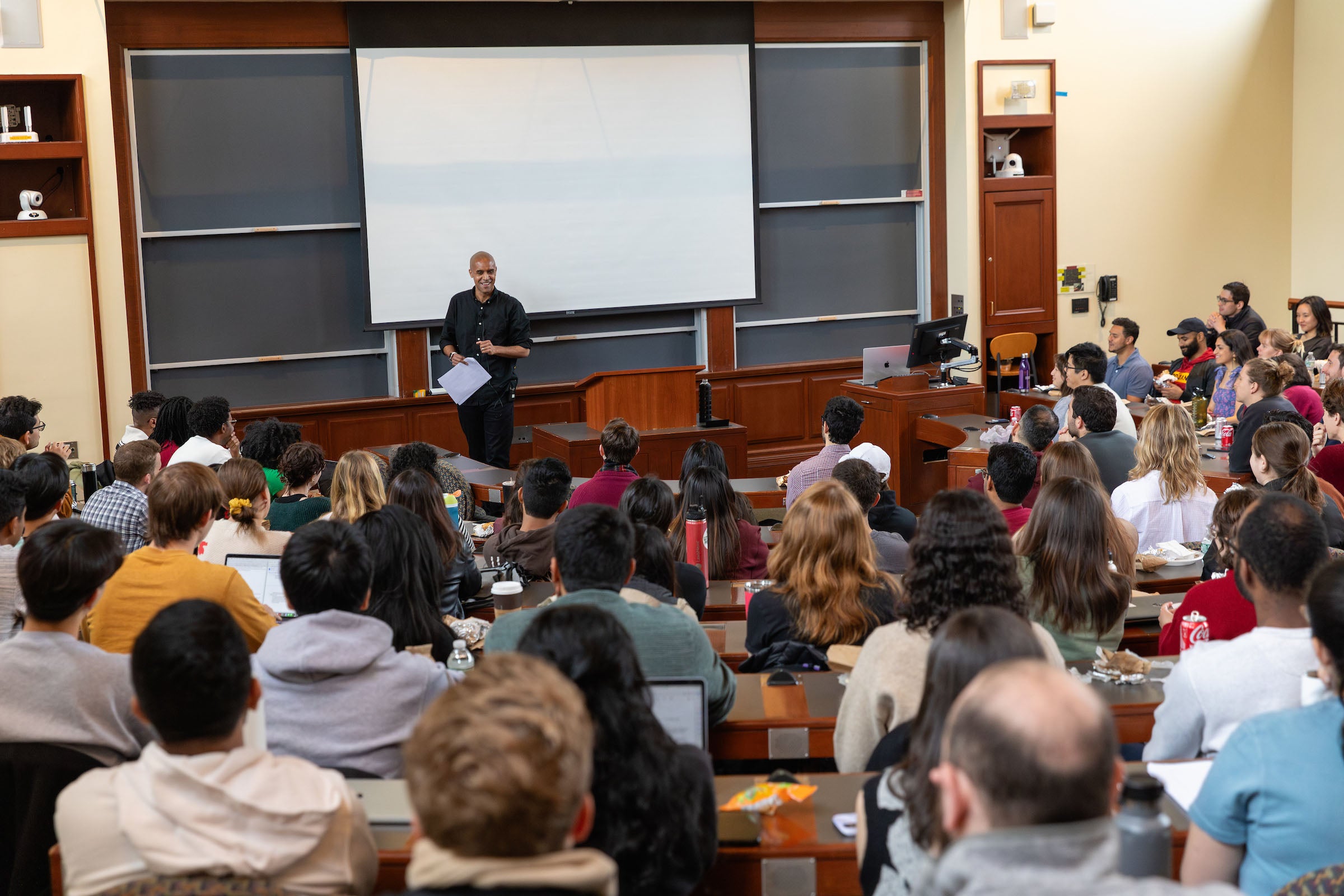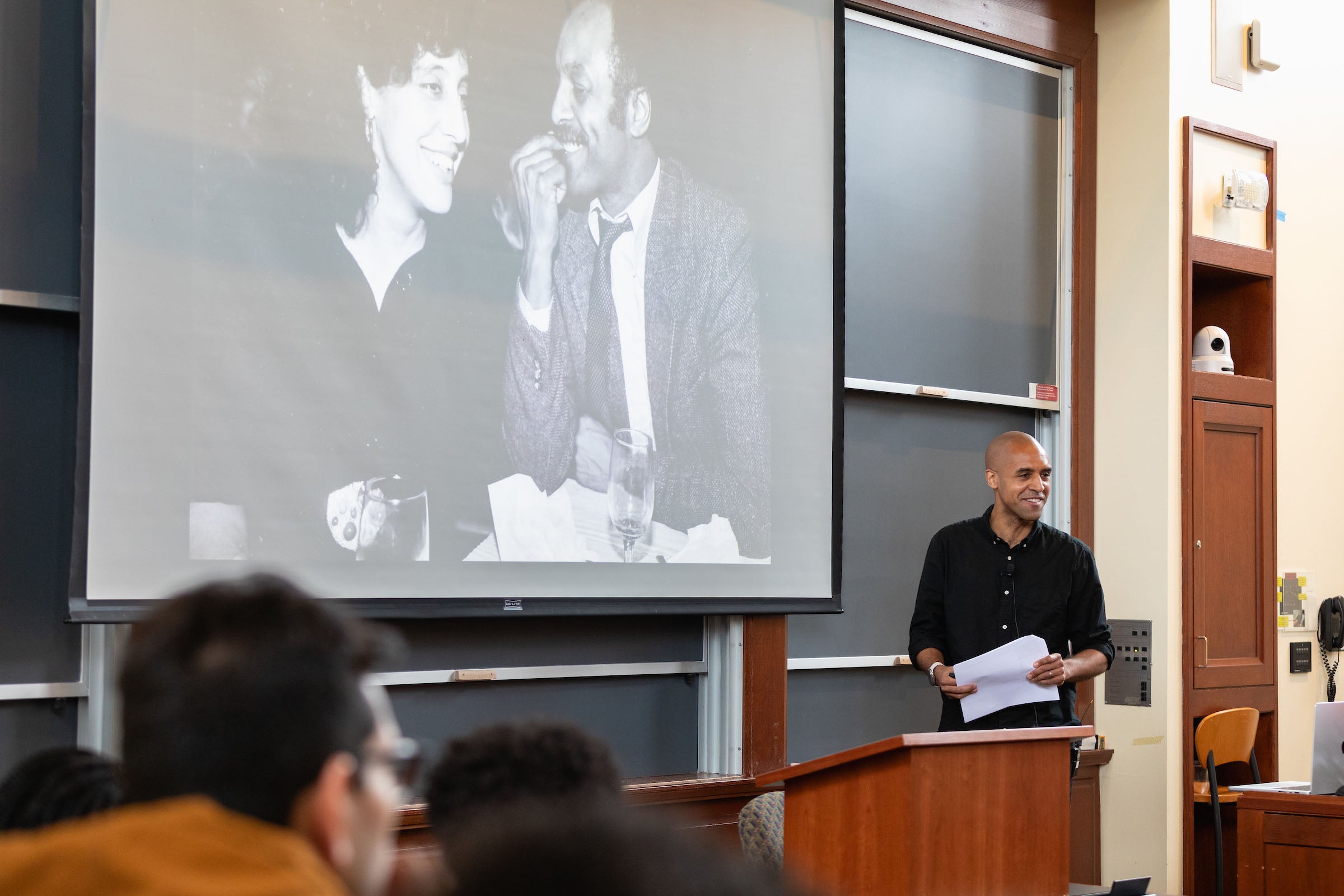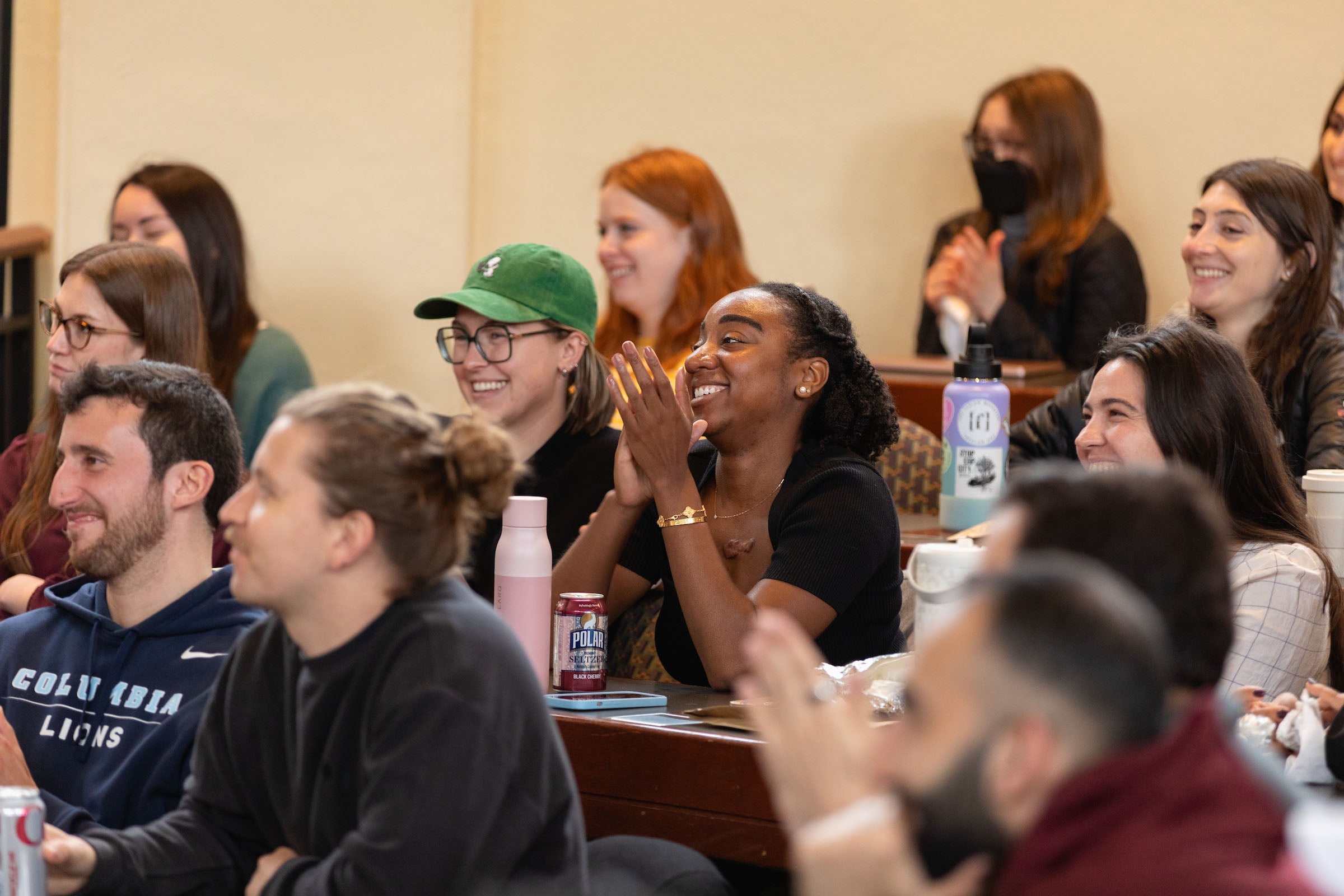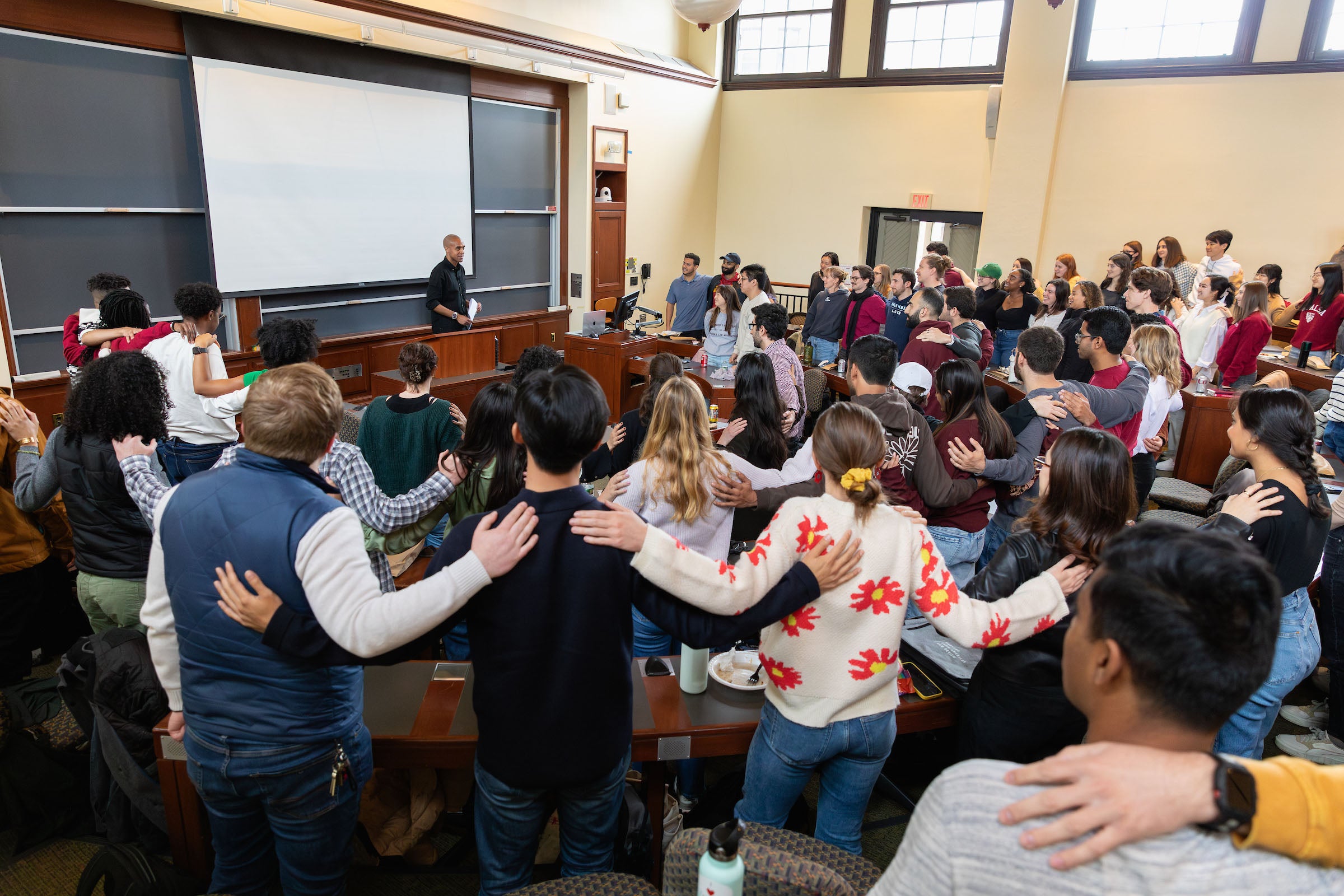“Your class is special. You’re a unique class,” declared Nikolas Bowie ’14, the Louis D. Brandeis Professor at Harvard Law School during his Last Lecture to the Class of 2024.
At the packed event, part of a series of talks by faculty to graduating students, Bowie explained that because the graduating students were the first to fully return to campus after the COVID-19 pandemic, they had faced a few unprecedented challenges. Not only did students have to navigate masking and social distancing, but they also experienced a lack of “institutional memory” about the school.
Despite this, the students rose to the occasion, Bowie said, advocating for bolstering the law school’s Low Income Protection Plan, for instance, and building organizations and coalitions that have achieved many important things in just three years.
But he lamented that many of their names have been removed from student organization websites since a wave of national and international criticism and “intimidation,” often targeting individual students, surfaced after some had advocated on behalf of Palestinians.
He went on to encourage the students to take credit for their advocacy, and to stand with one another against those who would try to intimidate or threaten their peers. “Being an ethical person does not require persecuting the people around you,” he said.
“Standing up for other people when they are facing persecution is hard,” Bowie continued. “It’s hard when the stakes are high, and it’s hard when the stakes are low.”
He recalled an anecdote from his teenage years that had left an impression on him. During a debate in high school about the progressive income tax, he had declined to speak up in support of another student, whose view on the issue was, he feared, unpopular with the rest of his classmates.
Afterward, Bowie’s teacher, knowing he likely agreed with the apparently lone proponent of taxing wealthy people at a higher rate, asked how he thought his classmate felt being the only person to stand up for the position, which Bowie had agreed with. The conversation stuck with him, he said.
“I think one of my assumptions in high school was, ‘I’m young. I don’t know anything. And as I get older, as I get more power and more responsibility, it will be easier to stand up on behalf of others.’ But I found that that sense of vulnerability, of being unafraid to take risks, just never really goes away.”
In fact, he added, sometimes “climbing the ladder of power” actually makes it more difficult to stand with others to do what’s right, because it can be helpful to “put your principles on the ground for a second while you keep climbing.”
So, what encourages solidarity, according to Bowie? Relationships. “There’s lots and lots and lots of research about what is it that persuades people to join others in pursuit of change, even in the face of threats, even when it’s hard, even when you are better off sitting on your couch hoping that someone else will do the hard work for you.”
Relationships with other people have fueled the labor movement, campaigns for justice, and other historic and contemporary causes, added Bowie. As an example, he pointed to the young people who participated in the Freedom Summer of 1964, traveling from northern states to Mississippi to help Black people register to vote. What was the difference between those who chose to go, even under threat of violence or death — and those who did not?
Again, it comes down to strong connections, Bowie said. “The answer is not that one group was more committed than the other. It wasn’t that one group was more knowledgeable, or one group simply had more of what it takes, more courage. It was that one group simply knew more people who were going to Mississippi,” he said. “Courage comes not just from ourselves but from other people.”
Bowie then shared some of his own family’s history of solidarity, beginning with his grandfather, Ewart Gladstone Guinier, a Jamaican American who entered Harvard College in 1929. In an interview with the New York Times decades later, Guinier recounted the ostracization and discrimination he had experienced as one of Harvard’s few Black students. Guinier eventually served as a union organizer with the United Public Workers of America.
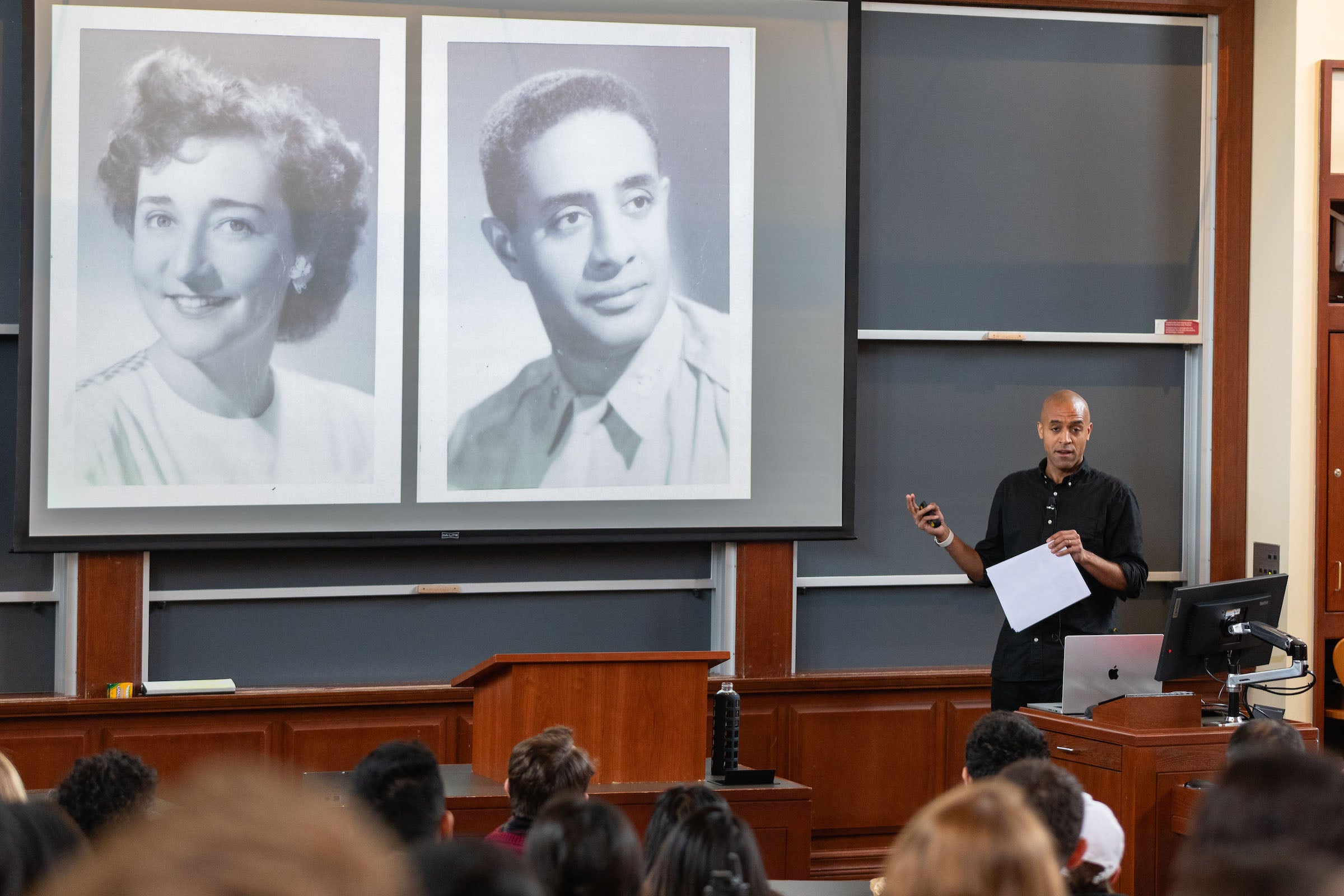
“He committed himself to the labor movement, he committed himself to building power among ordinary people, because he thought that was going to be the way to bring civil rights to Black Americans and all Americans,” Bowie said, adding that his grandfather was later “blacklisted” during the McCarthy era.
Bowie’s grandmother, Eugenia Paprin, was the daughter of Jewish immigrants to New York City — and “a radical,” according to Bowie — who worked to end the racial segregation of soldiers during World War II. As a member of the Red Cross, Paprin organized a labor canteen, “one that was an integrated space for Black and white people in Hawaii to socialize and come together in celebration of themselves and the principles that they were fighting for.”
His grandparents met at the labor canteen. What Paprin loved about Guinier, he said, “wasn’t the sense that being in a relationship with him would be easy. But because what she found that what he stood for was community.”
Later, Guinier and Paprin’s daughter (and Bowie’s mother) — Lani Guinier — attended Radcliffe College, where, he recounted, she and five other Black students successfully called on the college to admit more women of color.
Black students also advocated, Bowie said, for the creation of a Department of Afro-American Studies at Harvard. In 1969, the university faculty voted to do so, and invited Ewart Guinier to return — this time as a full professor and the first chair of the newly established academic unit. “What brought him back was not anything that he had done differently, but because a community at Harvard had rallied around him,” Bowie said.
Decades later, Bowie explained that, following more activism by Harvard Law School students and faculty members — including Barack Obama ’91 and Derrick Bell, the first tenured African American professor of law at Harvard — Lani Guinier joined the Harvard Law faculty in 1998. She later became the first woman of color to be granted tenure at the school.
The lesson, said Bowie, “is that my mom, my grandparents, and people like Derrick Bell do not have this unusual or unique sense of courage that only comes once in a blue moon.” Rather, he continued, “They had relationships. They had close relationships with family, with their loved ones, and with students, because they knew what it felt like to be isolated, standing alone on principle. And they knew that their courage to do that came from other people’s courage to stand with them.”
Bowie said that is why he continues in his family’s tradition — standing with students as they advocate for change on important issues, such as the rights of Harvard workers, or war in the Middle East.
And he recounted how, in response to his co-signing a letter supporting students’ rights to express their “sense of justice,” a website falsely labelled him as antisemitic. In the face of this attack, Bowie said that he drew strength from students, colleagues, and others “who have faced similar attacks” but remained steadfast in their views.
“I have been inspired by you,” he said. “Because I see you see the same threats that I see, and yet you’re doing something about it. And so, I draw my courage from you.”
